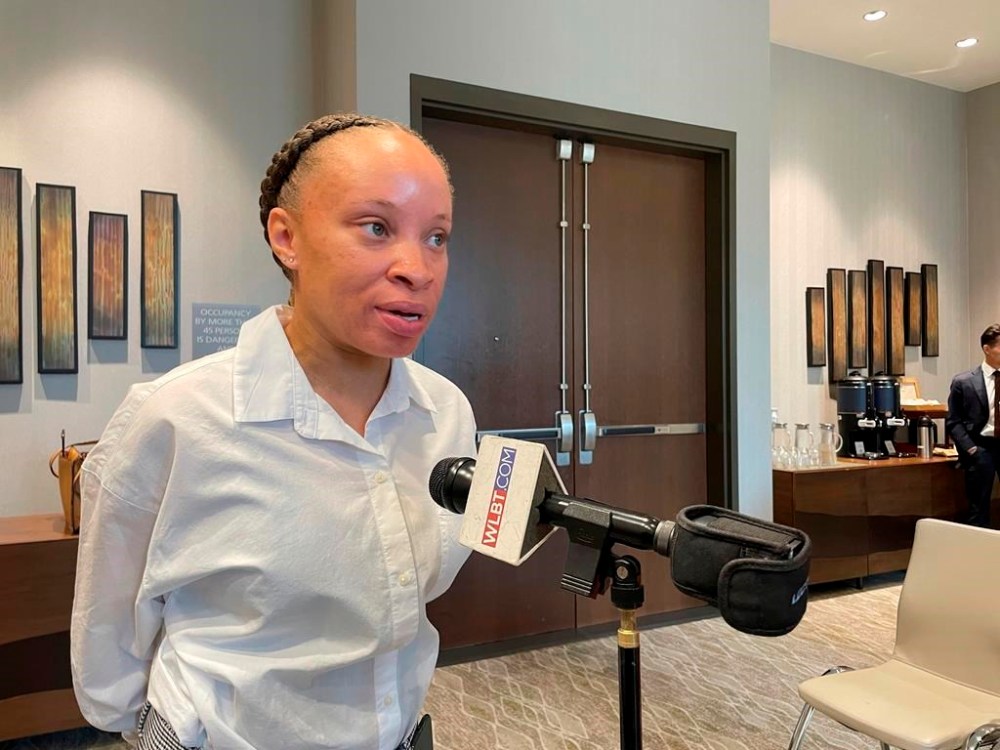Trial starts in case that seeks more Black justices on Mississippi’s highest court
Advertisement
Read this article for free:
or
Already have an account? Log in here »
To continue reading, please subscribe:
Monthly Digital Subscription
$0 for the first 4 weeks*
- Enjoy unlimited reading on winnipegfreepress.com
- Read the E-Edition, our digital replica newspaper
- Access News Break, our award-winning app
- Play interactive puzzles
*No charge for 4 weeks then price increases to the regular rate of $19.00 plus GST every four weeks. Offer available to new and qualified returning subscribers only. Cancel any time.
Monthly Digital Subscription
$4.75/week*
- Enjoy unlimited reading on winnipegfreepress.com
- Read the E-Edition, our digital replica newspaper
- Access News Break, our award-winning app
- Play interactive puzzles
*Billed as $19 plus GST every four weeks. Cancel any time.
To continue reading, please subscribe:
Add Free Press access to your Brandon Sun subscription for only an additional
$1 for the first 4 weeks*
*Your next subscription payment will increase by $1.00 and you will be charged $16.99 plus GST for four weeks. After four weeks, your payment will increase to $23.99 plus GST every four weeks.
Read unlimited articles for free today:
or
Already have an account? Log in here »
Hey there, time traveller!
This article was published 05/08/2024 (456 days ago), so information in it may no longer be current.
JACKSON, Miss. (AP) — Mississippi has the largest percentage of Black residents in the U.S., but only one Black justice serves on the state’s highest court.
A federal judge started hearing arguments Monday in a lawsuit that seeks to compel Mississippi to redraw its three Supreme Court districts to increase the chances of Black candidates being elected. The district lines have been unchanged since 1987.
About 38% of Mississippi residents are Black. The state has nine Supreme Court justices, with three elected from each of the districts in the northern, central and southern parts of the state. Eight of the current justices are white, and one is Black.

Four Black justices have served on the Mississippi Supreme Court, and never more than one at a time.
“The reason for this persistent underrepresentation is that Mississippi employs Supreme Court district boundaries that dilute the voting strength of Black Mississippians in Supreme Court elections,” attorneys for Black plaintiffs who are challenging the system said in written arguments.
State attorneys said the current districts are fair.
The federal Voting Rights Act guarantees Black voters of the Central District “an equal opportunity to participate and to elect Justices, not that their favored candidate will win every election,” state attorneys said in written arguments ahead of the trial that began Monday in Oxford.
The Black voting age population in the central district — people 18 and older — is about 49%, which is the highest in any of the three districts, according to the suit. A Black candidate lost to a white candidate in the central district in 2012 and 2020.
The Supreme Court districts are also used to elect the three members of the state Transportation Commission and the three members of the state Public Service Commission. Each of those commissions currently has white members elected from the northern and southern districts and a Black member elected from the central district.
The American Civil Liberties Union, ACLU of Mississippi, Southern Poverty Law Center and the New York-based law firm Simpson Thacher & Bartlett filed the judicial redistricting lawsuit in federal court in April 2022 on behalf of four Black residents of Mississippi.
Ty Pinkins of Vicksburg, one of the plaintiffs, is an attorney who works in the majority-Black Mississippi Delta. He’s also the Democratic nominee for a U.S. Senate seat this year, challenging Republican incumbent Roger Wicker.
“Our Supreme Court should reflect the diversity of our state, and it is imperative that we address these disparities to uphold the principles of democracy and equality,” Pinkins said in a campaign email Monday.
Mississippi legislators in 2022 updated the state’s congressional and legislative district boundaries to account for population changes revealed by the 2020 census.
Last month, a panel of federal judges ordered legislators to redraw some legislative districts to replace ones where Black voting power is currently diluted. That ruling came in a lawsuit that is separate from the suit over judicial districts. The judge hearing the judicial redistricting lawsuit was not among those who heard the suit over legislative districts. The cases are heard by judges only, without juries.

